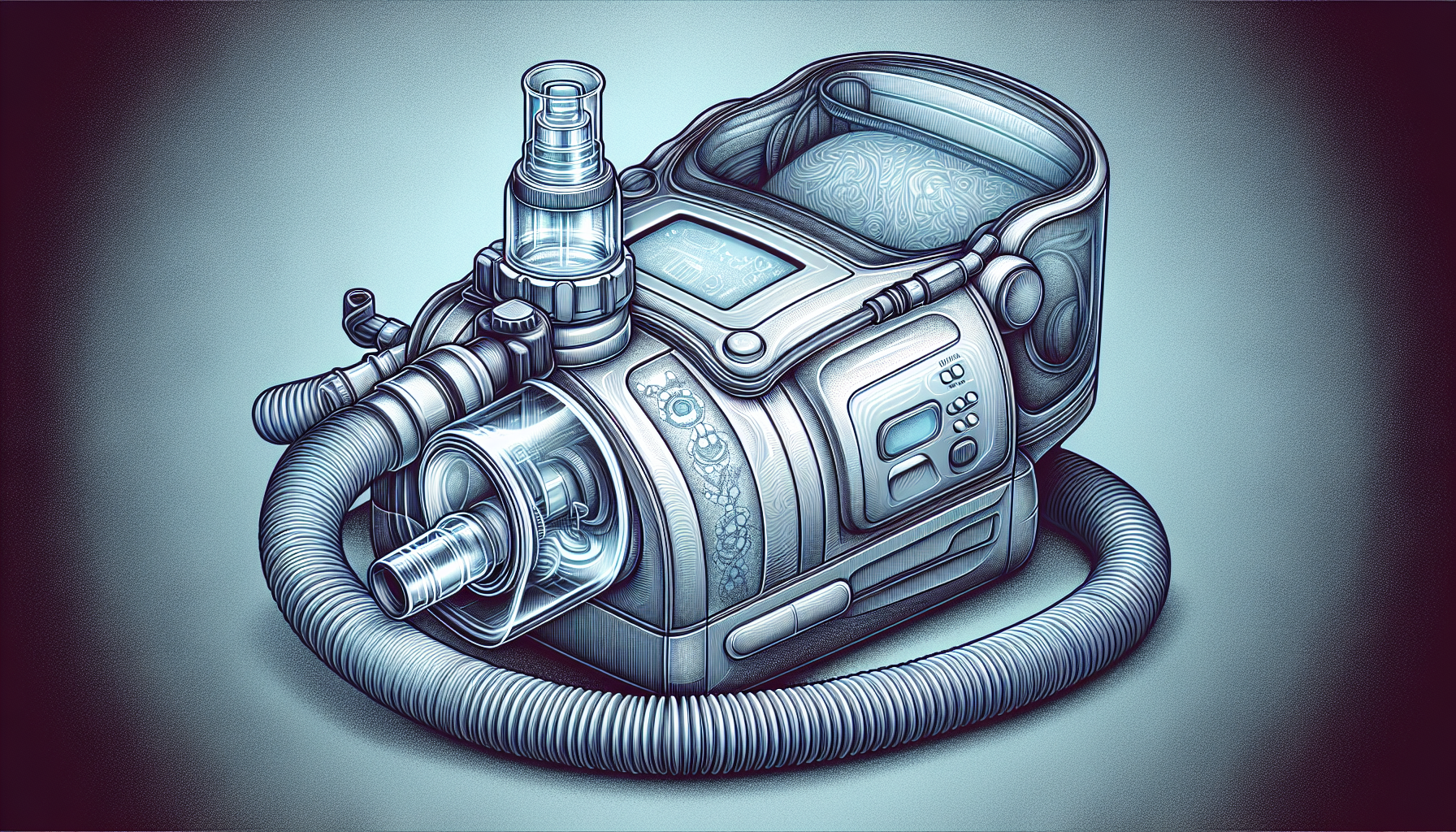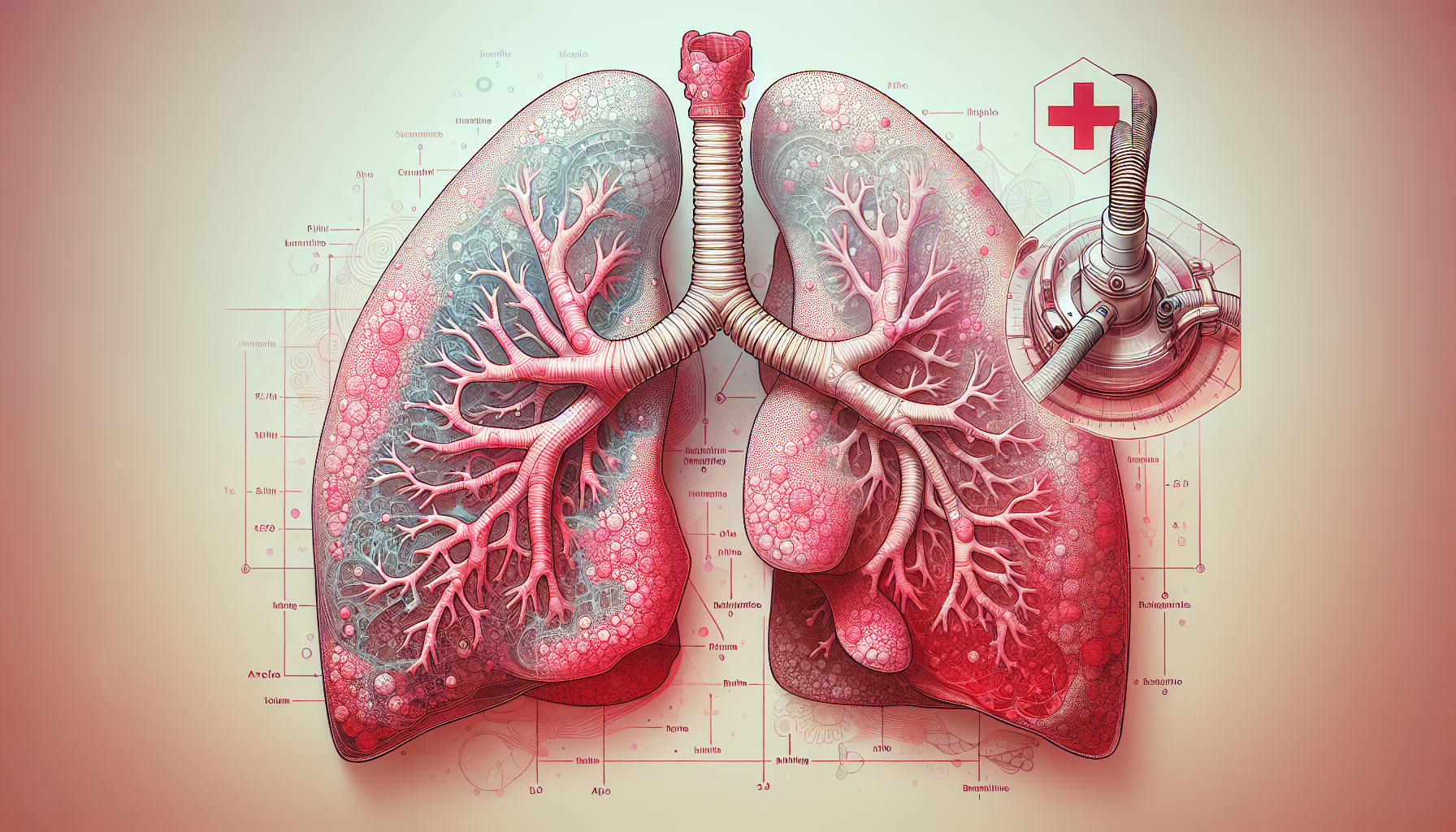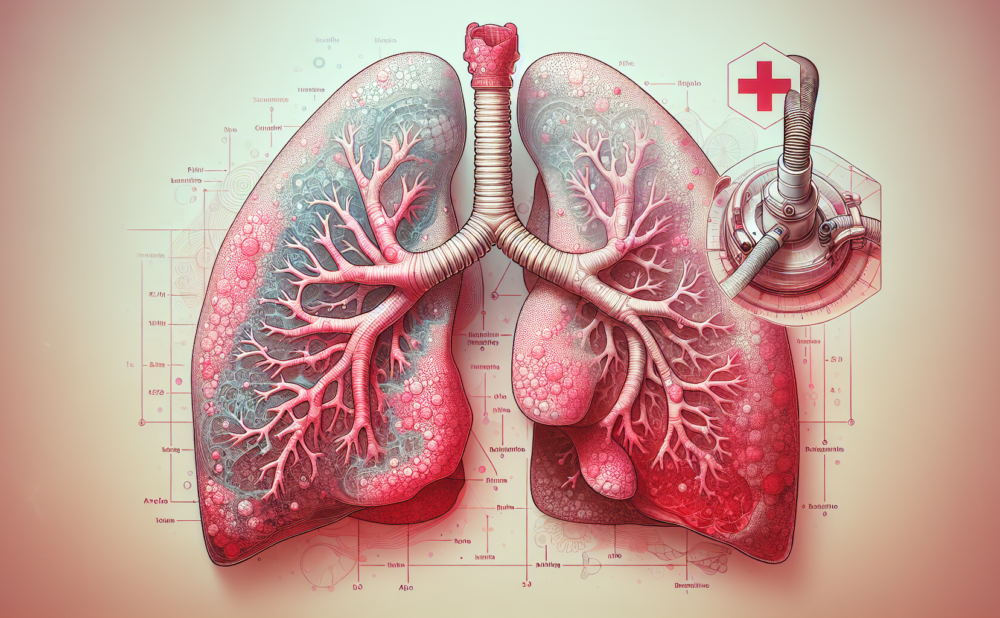Do you live in Texas and are wondering if you qualify for a Philips CPAP recall lawsuit? Amidst the Philips CPAP recall, this article serves as a straightforward guide to the latest legal developments, offering essential pointers on eligibility for a lawsuit, understanding settlements, and steps for affected users. In a situation fraught with challenges, our intent is to provide direct, practical advice on navigating the CPAP lawsuit terrain with confidence, minus the convoluted details or promotional content.
If you need help with your CPAP Lawsuit then contact us for a FREE consultation.
Key Takeaways
- The Philips CPAP and BiPAP devices recall is due to health risks posed by the degradation of carcinogenic PE-PUR foam, resulting in lawsuits against Philips for negligence and failing to inform the public about these risks.
- Philips faces numerous lawsuits with potentially significant financial implications, and individuals affected by the recall of CPAP devices may be eligible for compensation for medical expenses, pain, and suffering.
- The recall has substantial repercussions for Philips, including regulatory scrutiny, changes in industry standards for medical devices, and impact on the company’s financial position and reputation.
Philips CPAP Recall Background

The recall of all Philips CPAP and BiPAP devices is a significant event, indicating a serious health hazard to users. The Philips CPAP recall was necessitated due to potential health risks posed by the breakdown of carcinogenic PE-PUR polyurethane foam used in the machines. This foam, used for sound abatement, was found to degrade under certain conditions, releasing toxic chemicals and posing serious health risks to users. Some of the potential health risks include:
- Respiratory issues
- Irritation of the eyes, nose, and throat
- Headaches
- Nausea
- Dizziness
If you are using a Philips CPAP or BiPAP device, it is important to contact your healthcare provider or Philips for further instructions and to arrange for a replacement or repair of your device.
Recalled Philips CPAP machines have been linked to several health risks, including:
- Inflammatory responses
- Headaches
- Asthma
- Vital organ damage
- Toxic carcinogenic effects
The potential for these health issues to arise from the use of a device intended to improve sleep quality and overall health is a cause of deep concern. This concern has led to an influx of lawsuits filed against Philips Respironics, alleging negligence and failure to adequately inform the public about the risks.
Post recall, Philips must comply with FDA requirements before lifting production and sales restrictions on new CPAP and BiPAP machines at certain facilities. This has further compounded the challenges for the company, which is grappling with the financial and reputational fallout from the recall. As Philips works to address these issues, many CPAP users are left in a state of limbo, unsure of their next steps.
As the company strives to rectify the situation, numerous users are grappling with health issues potentially connected to the recalled devices. Such concerns have triggered an influx of lawsuits against Philips, with claimants seeking compensation for medical expenses, pain and suffering, while holding the company liable for alleged negligence.
The Role of PE-PUR Foam
The PE-PUR foam’s primary purpose in Philips CPAP machines is sound abatement, ensuring the devices operate quietly for the user’s comfort. While its purpose is to enhance the user experience, the foam has become a source of anxiety and fear for many users. The recall of Philips CPAP devices was prompted by the degradation of the polyester-based polyurethane (PE-PUR) foam, which can result in users inhaling or swallowing black pieces of foam or being exposed to harmful chemicals.
The degradation of the PE-PUR foam can be accelerated by hot and humid conditions, or by using cleaning methods not recommended by the manufacturer. Toxic chemicals such as volatile organic compounds (VOCs), including urethane, benzene, and formaldehyde, can be released as the PE-PUR foam degrades, posing a risk of inhalation or ingestion by users. The potential health implications of these chemicals have raised serious concerns among users and have been a significant factor in the lawsuits filed against Philips.
Timeline of the Recall
Philips issued a safety notice and recall for its CPAP machines in June 2021. This significant event marked the beginning of a period of uncertainty and worry for millions of sleep apnea patients who rely on these recalled Philips CPAP devices for their health and well-being. The Philips CPAP recall was classified as a Class I recall by the FDA, the most serious classification, indicating the devices may cause serious injuries or death. As a result, the Philips CPAP recall MDL has garnered significant attention from both patients and the medical community.
The FDA heightened oversight over Philips by demanding the submission of a plan for the remediation of recalled respiratory devices. However, the recall process has not been without its challenges. Another Class I recall was faced by Philips in 2023 from the FDA. This was due to safety issues with the settings of their reprogrammed replacement devices. This raised further concerns and prompted additional scrutiny from the FDA and other regulatory bodies.
As of April 2024, the current status of the Philips CPAP recall and remediation efforts is as follows:
- The recall and remediation efforts are ongoing.
- The number of replacement CPAP devices actually distributed to customers by Philips is significantly lower than the almost 2.5 million units claimed by the company.
- Philips’ efforts to address the recall are continuing.
- Lawsuits filed against the company are also progressing.
- There is the potential for significant financial implications for the company.
Filing a Philips CPAP Lawsuit
Affected individuals might find filing a Philips CPAP lawsuit a daunting task. Yet, it’s an essential step in pursuing compensation for medical expenses and pain endured due to the recalled devices use. Moreover, such lawsuits are instrumental in holding Philips accountable for the alleged negligence leading to the recall.
Potential claims can be evaluated free of charge by CPAP recall lawyers, who can be contacted online or by phone. Swift action and awareness of specific state deadlines, including the statute of limitations commencing either from the date of CPAP recall announcement or injury discovery, is crucial. With appropriate legal guidance, individuals can maneuver through the legal process and pursue the compensation they rightfully deserve.
Note that Philips plans to robustly defend against CPAP injury claims. Yet, law firms such as Morgan & Morgan actively represent individuals and have succeeded in securing substantial compensation in several cases. Specializing in product liability cases, such law firms possess the necessary resources and expertise to challenge large corporations such as Philips.
Eligibility Criteria
Grasping the eligibility criteria for filing a lawsuit is vital for those impacted by the recall. To qualify for a lawsuit, an individual must have used one of the recalled Philips Bi-PAP, CPAP, or ventilator devices. This means that anyone who has used these devices, irrespective of whether they have experienced any adverse health effects, may be eligible to file a claim.
However, to strengthen the case and potentially increase the compensation, individuals must have suffered adverse health consequences as a result of using the defective Philips CPAP device. Additionally, there is an age criterion for eligibility; only individuals who are under the age of 80 and who used a recalled device with harmful side effects are eligible to file a lawsuit.
Potential Compensation
When lodging a Philips CPAP lawsuit, understanding the potential compensation that can be claimed is crucial. The nature of the injuries suffered and the jurisdiction where the case is filed can cause this compensation to vary. Plaintiffs may seek compensation for a variety of financial impacts, including medical expenses, lost wages, and pain and suffering as a result of injuries from faulty devices.
Philips Respironics had agreed to a comprehensive settlement, totaling $1.1 billion, to address financial damages and provide compensation for individuals with physical injuries tied to the CPAP recall. However, specific injury settlements vary, with estimated amounts for respiratory cases potentially being higher due to strong scientific evidence. Cancer-related lawsuits have seen averages between $100,000 and $500,000.
Moreover, most jurisdictions are allowing for punitive damages in CPAP cases, reflecting the seriousness of the allegations and suggesting a high trial value for these lawsuits. This means that individuals filing a CPAP lawsuit could potentially receive substantial compensation, particularly if they have suffered severe health consequences due to the use of the recalled devices.
Ongoing CPAP Litigation Developments
The CPAP litigation landscape is ever-changing, with a constant flux of new lawsuits being filed and existing ones being dismissed or settled. In the past month, 27 CPAP lawsuits have been dismissed, with 15 new CPAP cancer lawsuits filed, reducing the multidistrict litigation (MDL) by twelve cases. This fluidity in the litigation landscape underscores the complexity of these cases and the challenges in predicting their outcomes.
Legal proceedings are supervised by a Special Master who has suggested partially approving Respironics’ motion to dismiss the medical monitoring complaint. Yet, Judge Conti has voiced concerns about dismissing all claims without deliberating state law subtleties. These developments demonstrate the convoluted nature of the legal battle and the various factors that can influence its outcome.
Over the past 30 days, 62 new lawsuits were added to the MDL while 13 new lawsuits were filed in May 2023. Claims not expected to be addressed before 2024 pertain to personal injury and wrongful death. This indicates the ongoing influx of lawsuits and the potential for additional claims to be filed in the future.
As of April 22, 2024, the current status of the legal battle between Philips and the individuals filing lawsuits is as follows:
- A settlement is anticipated in the latter half of the year.
- The complexity of achieving a global settlement is highlighted by diverse strategic approaches.
- Definite trial dates are needed, indicating that the legal battle is far from over.
- The outcome of the legal battle could have significant implications for both Philips and the individuals filing lawsuits.
Multidistrict Litigation (MDL) Status
The multidistrict litigation (MDL) process amalgamates individual lawsuits sharing common factual issues before a singular court, accelerating the legal proceedings. In this case, the MDL process is ongoing in the Western District of Pennsylvania, with various developments shaping its trajectory. A consent decree issued by a federal district court in April 2024 included provisions requiring Philips to implement a Recall Remediation Plan and restrict production and sale of new CPAP, BiPAP, and other devices at several facilities until compliance requirements are met.
The MDL process is crucial in determining the potential compensation that individuals can receive for their injuries. The recommendation in the CPAP Lawsuit MDL was to dismiss most of Philips’ arguments in their motion to dismiss. This suggests that the court is leaning towards the plaintiffs in these cases, potentially increasing the likelihood of a favorable outcome for those filing lawsuits.
Nevertheless, the MDL process is intricate and unpredictable, with multiple factors impacting its outcome. Hence, it’s imperative for lawsuit filers to procure legal assistance from seasoned CPAP lawyers who can navigate them through the process and champion their rights.
Bellwether Trials and Settlement Expectations
Bellwether trials hold a pivotal role in the MDL process. These trials involve a small group of cases that are tried first to test the strengths and weaknesses of the claims and defenses, providing a basis for negotiating settlements in similar cases. For the CPAP multidistrict litigation, bellwether trials are scheduled to potentially start in 2025.
However, there is a discrepancy in the expected timeline for the bellwether trials, with plaintiffs aiming for a mid-2024 start while defendants argue a start isn’t possible until late 2025 or 2026. Regardless of when these trials begin, the outcomes will be crucial in shaping the settlement expectations for future lawsuits claiming the devices caused cancer and other health issues.
Health Issues Linked to Recalled CPAP Machines

Health issues associated with the recalled Philips CPAP machines contribute significantly to user concerns and primarily propel the lawsuits filed against the company. Toxic chemicals such as:
- toluene diamine
- toluene diisocyanate
- diethylene glycol
- dimethyl diazine
have been found to be released from degraded foam in recalled Philips CPAP machines. The FDA’s investigation revealed that the degradation products of PE-PUR foam from the recalled devices are toxic and potentially carcinogenic.
Health issues like respiratory problems and various types of cancer have been linked to the use of recalled Philips CPAP machines. These health risks can have severe, potentially life-threatening consequences for users, causing significant distress and anxiety. Users stricken by the recalled machines need to evaluate potential health impacts and pursue medical and legal advice for subsequent action.
One particular case that highlights the potential severity of these health issues involves a Tennessee man who filed an amended complaint claiming heart damage after using a recalled CPAP. This case underscores the dire consequences that can result from using the recalled devices and the necessity for affected individuals to seek legal recourse.
Respiratory Problems
The respiratory problems reported by users of the recalled Philips CPAP machines are a significant cause of concern. Individuals have reported the development of serious respiratory health issues such as Chronic Obstructive Pulmonary Disease (COPD) and tumors in the throat following the use of Philips CPAP machines.
The lawsuits allege that users of the Philips CPAP machines have inhaled carcinogenic substances from the degraded foam particles of the devices. These allegations underscore the potential health risks associated with the recalled machines and the need for users to seek medical attention if they experience any respiratory issues.
Cancer Risks
In addition to respiratory problems, the use of recalled Philips CPAP machines has been linked to an increased risk of certain types of cancer. Claims filed in relation to the Philips CPAP machines include diagnoses of mouth and tongue cancers, nasal cavity cancer, and adenocarcinoma.
Lawsuits involving lung cancer, head, and neck cancers are suggested by legal experts to hold the strongest settlement potential in the Philips CPAP litigation. The lawsuits claim that Philips was aware of the cancer and organ damage risks due to the degraded PE-PUR foam in their CPAP devices but failed to adequately inform the public. This alleged negligence has spurred numerous lawsuits seeking compensation for medical expenses, pain, and suffering, and holding Philips accountable for their actions.
Legal Assistance for CPAP Lawsuit Claimants
Maneuvering through the CPAP lawsuits’ legal landscape can be intricate and daunting, especially for individuals wrestling with health issues potentially tied to the use of the recalled devices. Hence, procuring professional legal assistance becomes crucial in this process. Experience should be the main consideration when choosing a CPAP lawsuit lawyer. Choosing a lawyer with a proven track record in managing CPAP lawsuits is essential. Law firms such as Chalik & Chalik Injury Lawyers specialize in assisting clients with filing CPAP lawsuits and navigating the legal process.
These law firms operate on a contingency-fee payment model, ensuring clients only pay legal fees if the case is successful. This payment model reduces the financial burden on individuals seeking legal recourse and ensures they can access the legal assistance they need regardless of their financial situation.
Securing legal assistance not only aids individuals in understanding their rights and navigating the legal process, but also offers the much-needed support and guidance during this challenging period. With the right legal guidance, individuals can seek the compensation they deserve and hold Philips accountable for the alleged negligence that led to the recall.
Choosing the Right Attorney
Selecting the appropriate attorney for a Philips CPAP lawsuit is a significant step in the legal process. When selecting an attorney, it’s important to look for one with the critical qualities and resources needed to fight for compensation. An attorney who understands product defect cases and has a track record of helping clients secure compensation is crucial for a CPAP lawsuit.
Law firms with a specialization in negligence claims, such as those related to medical malpractice and wrongful death, are likely to have the expertise required for CPAP litigation. By choosing the right CPAP lawyer, individuals can increase their chances of a successful outcome in their lawsuit and secure the compensation they deserve.
Preparing for Your Case
Preparing for a CPAP lawsuit necessitates individuals to gather all essential evidence backing their claims. This includes keeping the recalled Philips CPAP machine as it serves as evidence in a potential lawsuit.
Additionally, individuals should be prepared to discuss their health history and experience with the device, including any adverse health effects they have suffered as a result of using the recalled machine.
Impact on Philips and the Medical Device Industry
The recall of Philips CPAP machines has significantly impacted not just the company, but also the wider medical device industry. Philips’ handling of the CPAP recalls has drawn dissatisfaction from the FDA. As a result, the company has been asked to conduct further risk testing. This increased scrutiny has led to changes in regulatory practices and industry standards, ensuring that patient safety remains a top priority.
Philips Respironics is under a consent decree issued on April 10, 2024, which mandates the halting of production and restricts the sales of new CPAP machines until they meet specific requirements set by the court. This regulatory action underscores the seriousness of the recall and the need for Philips to address the issues promptly and effectively.
Furthermore, the recall has inflicted reputational harm on Philips, prompting the company’s CEO to publicly apologize for the recall and announce steps towards realigning with the company’s ‘people-centered’ core values. This public apology reflects the company’s recognition of the gravity of the situation and its commitment to rectifying the issues.
Yet, the impact of the recall transcends Philips, instigating changes across the entire medical device industry. Safety concerns, including the degradation of CPAP device foam and issues with CPAP mask magnets, have prompted regulatory bodies to reevaluate standards for wearable medical device components and develop more robust standards for device material compatibility and maintenance.
Philips’ Financial and Reputation Consequences
The CPAP machines recall has caused notable financial consequences for Philips, including:
- Estimated costs to settle personal injury and wrongful death lawsuits ranging from $2 billion to $4.5 billion
- Implementation of major cost-cutting measures
- Reduction of its global workforce
As part of a provisional agreement with the FDA, Philips Respironics intends to temporarily halt the sale of CPAP devices in the U.S., with a settlement estimated at $400 million. The company has also agreed to pay $479 million to settle a CPAP class-action lawsuit. These settlement amounts reflect the potential financial liability that Philips could face as a result of the lawsuits filed against it.
Furthermore, the CPAP machine recall has had the following impacts on Philips:
- Grave health concerns raised
- Broad scope of affected devices
- Tarnished brand reputation
- Long-term implications for market position and customer trust
Regulatory Changes and Industry Standards
Regulatory changes and industry standard adjustments have been triggered by the recall of Philips CPAP machines. The degradation of CPAP device foam, attributed partially to the use of ozone cleaning machines, has led to regulatory scrutiny and the development of more robust standards for device material compatibility and maintenance. These changes aim to prevent similar issues in the future and ensure the safety and well-being of users.
Moreover, the recall of specific Resmed CPAP masks due to safety issues with magnets near implanted metallic medical devices has prompted regulatory bodies to reevaluate standards for wearable medical device components. These incidents have emphasized the need for ongoing updates to regulatory frameworks and industry standards to ensure patient safety in the face of new risks and technological advancements.
Summary
The recall of Philips CPAP machines due to potential health risks associated with degraded PE-PUR foam has had far-reaching implications, affecting millions of users worldwide. The recall has led to a surge in lawsuits filed against Philips, seeking compensation for medical expenses, pain, and suffering and holding the company accountable for the alleged negligence.
The lawsuits are currently being consolidated into an MDL, with bellwether trials scheduled to potentially start in 2025. These trials will be crucial in shaping the settlement expectations for future lawsuits. For individuals affected by the recall, seeking legal assistance is crucial in navigating the legal process and seeking the compensation they deserve.
Moreover, the recall has triggered regulatory scrutiny and changes in industry standards, underscoring the need for ongoing vigilance to ensure patient safety. The recall serves as a stark reminder of the importance of rigorous testing and quality control in the production of medical devices and the necessity for companies to prioritize patient safety over profit.
Frequently Asked Questions
Why was the Philips CPAP recall issued?
The Philips CPAP recall was issued due to the potential health risks posed by the breakdown of carcinogenic PE-PUR foam used in the machines, which can release toxic chemicals and pose serious health risks to users.
What health risks are associated with the use of recalled Philips CPAP machines?
The use of recalled Philips CPAP machines has been linked to several health risks, including inflammatory responses, headaches, asthma, vital organ damage, and toxic carcinogenic effects. It’s important to consult a healthcare professional if you have concerns about your CPAP machine.
How can I file a Philips CPAP lawsuit?
If you experienced health issues from using a recalled Philips CPAP machine, it’s best to consult with a CPAP lawyer for guidance on filing a lawsuit. Make sure to seek legal advice if you believe you are eligible for a lawsuit.
What compensation can I seek in a CPAP lawsuit?
In a CPAP lawsuit, you can seek compensation for medical expenses, lost wages, and pain and suffering caused by injuries from faulty devices. The compensation amount may vary based on the nature of the injuries and the jurisdiction.
How has the recall affected Philips and the medical device industry?
The recall has had a significant financial impact on Philips and has damaged its brand reputation. It has also prompted regulatory scrutiny and adjustments to industry standards to enhance patient safety.







